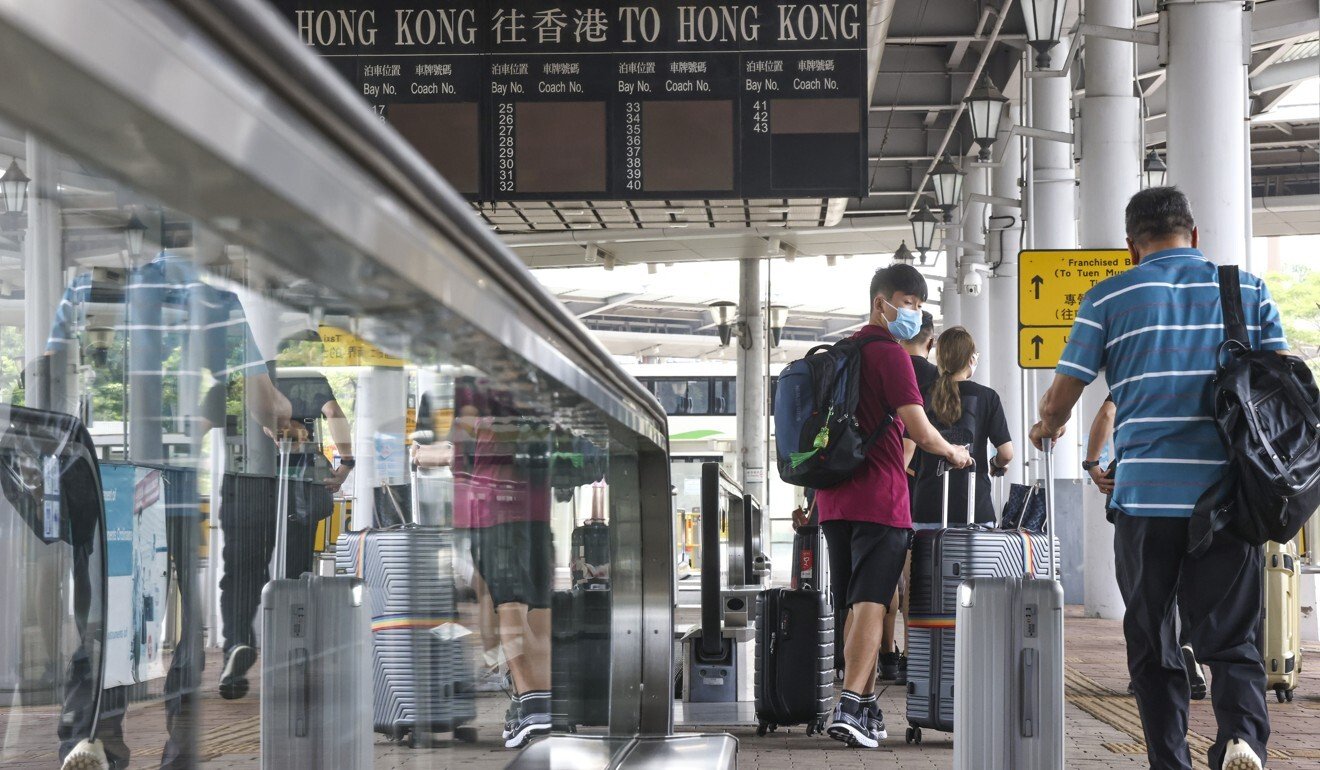
Coronavirus: Hong Kong health minister says criticism of new quarantine policy misses key point – even ‘small risk’ not acceptable
- Sophia Chan upbraids HKU epidemiologist Benjamin Cowling for calling policy ‘unethical’, says new 14-day isolation needed to maintain zero-Covid strategy
- City confirms five new Covid-19 cases on Friday among arrivals from the Philippines, United States and Russia
The dispute underscores a growing rift between some experts citing science-based arguments to suggest a “living with the virus” approach and the local government’s increasingly strict measures as it adopts a strategy more in line with mainland China’s zero-infection policy.
At stake is Hong Kong’s primary goal to reopen its border with the mainland, which is essential to the city’s economic development.

The government began enforcing the controversial new rule on Wednesday, requiring recovered Covid-19 patients ready for discharge from hospital to undergo an additional 14 days of quarantine.
Under the new rule, patients cannot be discharged until they test negative twice at least 24 hours apart. Another requirement is that they can only be released from hospital at least 10 days after the onset of symptoms or the first positive test.
Hong Kong’s change to Covid-19 quarantine rules has business groups exasperated
Cowling took to Twitter on Wednesday to criticise the extended quarantine policy as a “waste of resources and actively harming the patient with no community benefit to offset against”. He argued that the approach was not medically justified.
The health minister hit back two days later, writing in her letter: “Questioning longer isolation of patients to further reduce risk of virus shedding is premised on a small risk being acceptable.
“This goes against the government’s zero-Covid goal, which aims to prevent importation of cases and spread of the virus in the community.
“More importantly, measures taken by the government for the community’s interest must not be called ‘unethical’.”
Some Covid-19 patients are now guaranteed to spend at least 24 days in treatment and post-discharge quarantine before returning home.
Chan said the new rules were designed to “further minimise any residual risk of discharged patients passing the virus into the community”, adding such a threat “admittedly is low but not zero”.
In her letter, the minister said she respected but disagreed with academics who considered zero-Covid “unattainable, unsustainable or unworthy”.
“It is understandable that they perceive our stringent but necessary measures to maintain zero-Covid as harsh,” she said. “However, zero-Covid is our best strategy not only on public health but also social and economic considerations, and is in line with the aspirations of our community.”
Expert panel advises third shot for Hongkongers who took Sinovac Covid-19 vaccine
Daily life in Hong Kong was largely back to normal, Chan added, referring to the city’s strong showing this year in a global index published by The Economist measuring the extent to which countries and regions had returned to pre-pandemic levels of activity. She also noted there had been no local transmission of the coronavirus since May.
Given the prevalence of the more infectious Delta variant overseas, the city’s tolerance of risk under its zero-Covid strategy was lower than it previously was, Chan added.
“Globally we see the increasing dichotomy between the ‘living with Covid’ and ‘zero-Covid’ strategies,” she said. “Overseas experience has clearly demonstrated the price and perils of the former, where rising infections, hospitalisations and deaths have continued to plague people, health systems, societies and economies.”
The Post has contacted Cowling for a response to Chan’s comments.

Chief Executive Carrie Lam Cheng Yuet-ngor has also made it clear that reopening the mainland border was the city’s top priority and behind recent policy changes aimed at aligning the city’s strategy of handling the disease more closely with Beijing’s.
Following a meeting between officials and experts from Hong Kong and the mainland in late September, the city tightened several measures to meet the mainland’s expectations in pandemic-control measures.
These included more frequent testing for groups with high risk of exposure, a decision to cancel quarantine exemption for most groups which previously had the privilege and the stricter rules for discharging Covid-19 patients.
Authorities confirmed five imported coronavirus infections, all carrying the L452R mutant strain, on Friday. The cases involved three foreign domestic workers arriving from the Philippines and aircrew members from the United States and Russia.
The city’s overall infection tally stands at 12,342, with 213 related deaths.
Defending the government’s tightened discharge conditions, Dr Ho Pak-leung, an HKU infectious disease expert, on Friday said at least three studies conducted in mainland China had found a repositive testing rate of about 12 per cent for recovered Covid-19 patients.
The figure was based on the testing of 22,000 mainland coronavirus patients, he told a local radio programme, referencing studies conducted by the Centres for Disease Control and Prevention of Guangdong province and Wuhan.
Ho also conceded that repositive cases presented a relatively low risk.
But mainland authorities still believed a 12 per cent repositive rate was too high given their zero-Covid approach, he said, meaning Hong Kong had to follow suit in tightening its policy.


